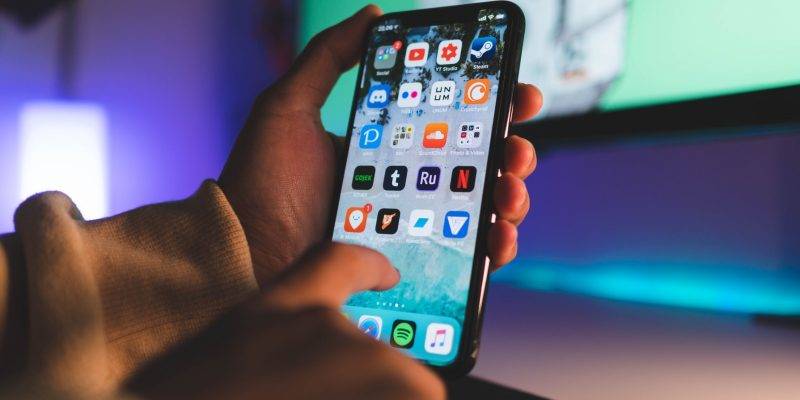Apple products have always been thought to be the safest and very strict when it comes to protecting user data and for the most part, this remains true.
While Google’s Android faces criticism every other day for their poor performance when it comes to protecting user privacy, iPhones have always been the love child for privacy, so much so that Apple put up a huge billboard taunting that “what happens on your iPhone, stays on your iPhone” back in CES.
Well, it seems that what happens on your iPhone, doesn’t really stay on it, especially when you’re sleeping. A research conducted by Geoffrey Fowler of The Washington Post found that a huge number of App’s on iOS were actually sending data to various external sources whenever your phone was idle. Wall Street Journal‘s Joanna Stern conducted a similar test and found 79 of the 80 apps she tested had secret trackers sending your personal data to third-parties.
According to George Fowler, his iPhone sends data to a dozen marketing companies, research firms and other personal data guzzlers all through the night. In his column, he states that “At 11:43 p.m., a company called Amplitude learned my phone number, email and exact location. At 3:58 a.m., another called Appboy got a digital fingerprint of my phone. At 6:25 a.m., a tracker called Demdex received a way to identify my phone and sent back a list of other trackers to pair up with.”
Interestingly, in his discovery, Yelp was pinging his IP address once every five minutes. In total, George found that there were over 5400 trackers hidden within apps that were sending data from his iPhone to various sources cumulating to about 1.5GB of data every month.
Some of these apps include OneDrive, Spotify, The Washington Post and a crime alert service, Citizen which was sending personally identifiable information – a violation against its own privacy policy.
Joanna, on the other hand, found that many of the tested apps were sending data to Facebook, some for analytical purposes but some for advertising purposes. Actually, the majority of the trackers found within these apps were for advertising, sending data to Google and a myriad of marketing firms.
You’d think ad tracking would end with paid apps but Joanna says that this is not the case because even when she paid for the apps that had a premium option, the tracking still continued. According to her, the problem is not tracking but rather the fact that these apps do not disclose that they will be keeping an eye on your every move on your phone.
The truth is, things could be worse on the Android camp but iPhones are on the spotlight over their strict stance on privacy and seeing that such levels of tracking exists, is worrying.
As much as the issues of app tracking has been raised and we’ll all discuss the many ways that this should not be happening, as long as Google and Apple (who control a majority of the world’s mobile software) do not actively do something to restrict the amount of tracking happening, then it’s all for nought.
Or maybe, we should just accept that we’re fighting a losing battle.
Over and over, it's the same thing: You can't control where your data goes online. Neither can the companies who make the devices you use. Or even the apps you use. Somewhere along the line, someone is ALWAYS going to get and sell your info https://t.co/Cfn2tZvoJt
— David Pierce (@pierce) May 31, 2019






Comments